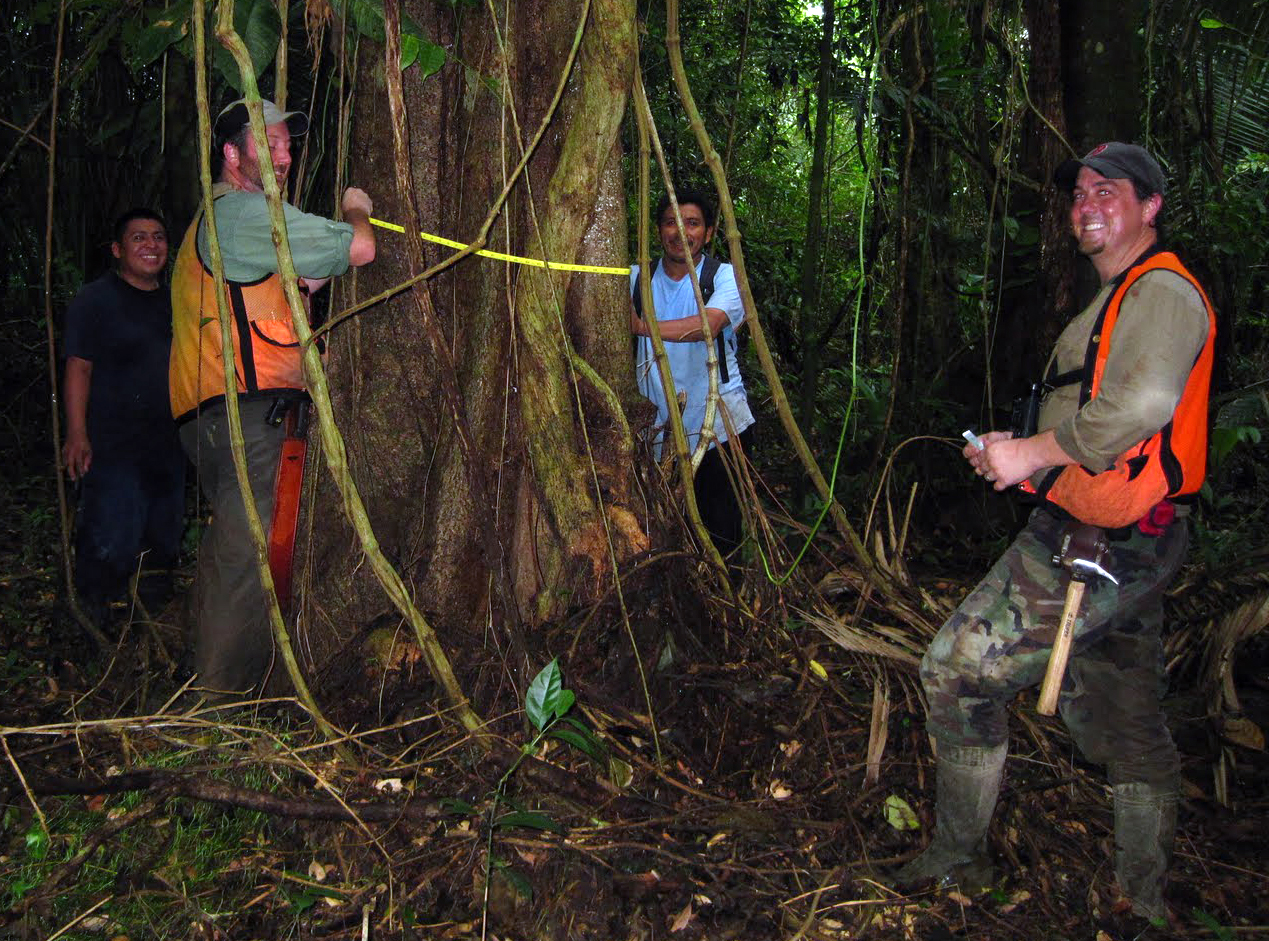Conservation Management Institute instrumental in completing carbon offset project

The Conservation Management Institute, a research center within Virginia Tech’s College of Natural Resources and Environment, provided technical expertise for the world’s first avoided planned deforestation project to receive certification under the requirements of the international Verified Carbon Standard.
The project follows the principles of Reduced Emissions from Deforestation and Forest Degradation (REDD), an international strategy for documenting the value of forest carbon offsets to conserve forests, thereby reducing greenhouse gases.
The carbon offset project was conducted at the Boden Creek Ecological Preserve in the Toledo district of Belize, approximately 14 miles north of the town of Punta Gorda.
The purpose of the project is to use financing from the sale of forest carbon offsets, under the auspices of the Verified Carbon Standard, to protect the preserve’s 12,876 acres in order to conserve biodiversity and enhance the local economy through ecotourism.
A carbon offset is a reduction in emissions of carbon dioxide or other greenhouse gases made in order to offset an emission made elsewhere. Markets for carbon offsets include companies or other entities that buy offsets to meet their goals for reducing the amount of carbon dioxide they emit.
To qualify for these carbon offsets, the project had to meet specific, globally accepted standards for quantifying net carbon savings (the Verified Carbon Standard), as well as biodiversity and community benefits (the Climate, Community, and Biodiversity Standard). In concert with Forest Carbon Offsets LLC, a forest carbon offset company devoted to conservation and sustainable forestry practices, Conservation Management Institute researchers collected data on the preserve’s biomass, biodiversity, and human community.
“The project is predicted by avoid emissions of 1.6 million metric tons of carbon dioxide equivalent into the atmosphere over the next 25 years,” said Verl Emrick, Conservation Management Institute project manager.
Institute researchers documented the presence of species listed as vulnerable by the International Union for Conservation of Nature, such as Baird’s tapir, and two Belize species of concern: the Yucatan black howler monkey and the Central American spider monkey. As a result, the project received the Gold Level Climate, Community, and Biodiversity Standard by virtue of significant biodiversity resources conserved on the property and the critical location of the property in the immediate watershed of the Port Honduras Marine Reserve.
Virginia Tech’s Conservation Management Institute is working on two additional carbon offset projects in Belize, which are likely to be certified within a year. The institute provides innovative solutions to multidisciplinary research questions that affect natural resource management in Virginia, North America, and the world.




.jpg.transform/m-medium/image.jpg)